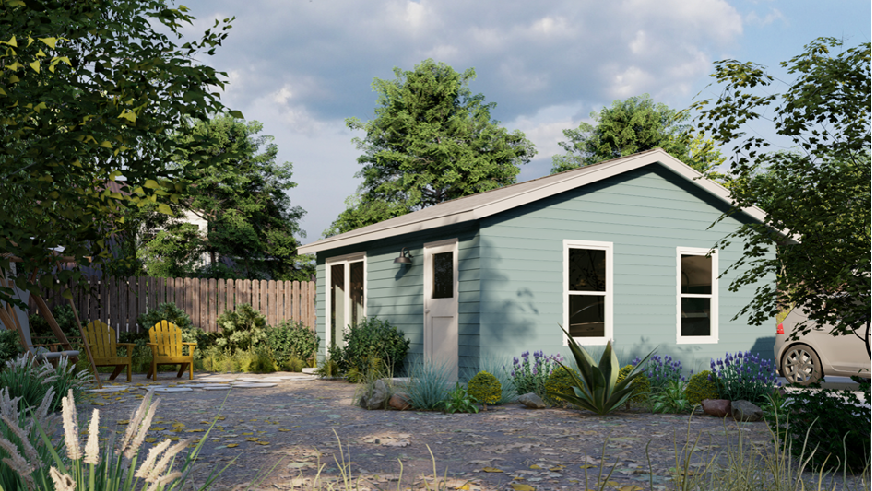ADUs and Garage Conversions: Legalities and Regulations You Need to Know
6 min read
Home remodeling and garage conversions have become increasingly popular in recent years, with homeowners seeking to maximize their living spaces and property values. In the complex landscape of accessory dwelling units (ADUs) and garage conversions, homeowners must navigate the maze of legalities and regulations. Understanding the intricacies of local laws ensures a smooth transformation process.
Homeowners should rely on experienced professionals who comprehend legal nuances and deliver quality craftsmanship when undertaking such projects.
For those seeking a trustworthy general contractor, My Home Builders stands out as the best choice in the following areas in Los Angeles County:
Best garage conversions in Los Angeles, CA
Premier garage conversion services in Woodland Hills, CA
Trusted ADUs and garage conversion services in Glendale, CA
Top choice for top-tier ADUs and garage conversion services in North Hollywood, CA
Moreover, this guide will explore the legalities and regulations surrounding Accessory Dwelling Units (ADUs) and garage conversions, shedding light on the essential aspects you need to know as a homeowner or contractor.
ADUs: What Are They?
Accessory Dwelling Units, commonly referred to as ADUs, are secondary residential units that can be either attached to the primary dwelling or built as a separate structure on the same property. They serve various purposes, providing homeowners with flexible living arrangements, rental income opportunities, or a solution for multi-generational living. ADUs have gained significant popularity in recent years due to their versatility and potential to address housing shortages in many areas.
Types of ADUs
ADUs come in various forms, each designed to cater to different needs and preferences. The most common types include detached ADUs, attached ADUs, and converted ADUs. Detached ADUs are standalone structures in the backyard, while attached ADUs are connected to the primary residence. Converted ADUs involve repurposing existing space within the primary home, such as a basement or garage. Choosing the correct type of ADU depends on factors like available space, budget, and intended use.
Zoning and Permitting Requirements
Before embarking on an ADU project, understanding your area’s zoning and permitting requirements is essential. Zoning regulations can dictate whether ADUs are allowed, their size limitations, setback requirements, and parking provisions. The permitting process typically involves obtaining the necessary approvals, adhering to building codes, and ensuring compliance with local regulations. It’s crucial to consult with your local planning department or a professional contractor who specializes in ADUs to navigate these requirements effectively.
Garage Conversions: A Popular Option
Transforming Unused Space
Garage conversions have become famous for homeowners seeking to maximize underutilized space. Often, garages serve as storage areas or spaces for parking cars, leaving potential living space untapped. Converting a garage into an ADU offers a cost-effective solution to expand living quarters without new construction. This transformation can include insulation, HVAC systems, flooring, and interior finishes, making it a versatile and practical choice.
Potential Benefits
Garage conversions come with several benefits. First, they offer a more affordable alternative to building a new structure. Second, they provide an opportunity to generate rental income or accommodate additional family members while maintaining privacy and independence. Additionally, garage conversions can enhance property value and curb appeal, as the exterior can be modified to blend with the existing home seamlessly. This option is particularly appealing in areas where available land is limited.
Municipal Approvals and Codes
The successful conversion of a garage into an ADU hinges on compliance with local municipal approvals and building codes. As with any construction project, obtaining the necessary permits is crucial. Municipalities often have specific requirements for zoning, fire safety, and electrical and plumbing systems. Ensuring that your garage conversion adheres to these codes ensures safety and avoids potential legal issues down the road. Professional contractors experienced in garage conversions can guide you through this process.
Legal Considerations for ADUs
Building Codes and Safety Standards
When planning an ADU project, it’s essential to prioritize building codes and safety standards. These regulations are in place to safeguard occupants and ensure that the structure meets structural, electrical, and plumbing requirements. Hiring a licensed contractor who understands the local building codes is paramount to the success of your project. Compliance with these codes keeps your ADU safe and protects you from potential liabilities.
Property Tax Implications
ADUs can have property tax implications, and it’s crucial to be aware of them before proceeding. Some areas assess additional property taxes on ADUs, while others may not. Understanding your local tax laws and how they apply to ADUs can help you budget appropriately and avoid unexpected financial burdens. Consulting with a tax professional or local tax authority is advisable to ensure you comply with property tax regulations.
Renting Out Your ADU
One of the primary motivations for building an ADU is the potential for rental income. However, renting out your ADU may come with legal responsibilities, such as drafting lease agreements, understanding tenant rights, and adhering to local landlord-tenant laws. Familiarizing yourself with these legal aspects is essential to ensure a smooth and trouble-free rental experience. Consult a real estate attorney or property management expert to navigate these waters effectively.
Regulations for Garage Conversions
Conforming to Zoning Laws
Garage conversions, like other ADUs, must conform to local zoning laws. Zoning regulations dictate setbacks, building height, and allowable land use. Adherence to these laws can result in costly setbacks or project delays. Working closely with your local planning department and a knowledgeable contractor can help you navigate these zoning requirements smoothly.
Meeting Building Codes
Converting a garage into an ADU also requires compliance with building codes. These codes cover various aspects of construction, including structural integrity, electrical wiring, plumbing, and fire safety. Ensuring that your garage conversion meets these codes guarantees safety and prevents legal issues in the future. Hiring a reputable contractor with experience in garage conversions is critical to achieving compliance with building codes.
Utilities and Accessibility
During a garage conversion, you’ll need to consider utilities such as plumbing, heating, cooling systems, and electrical wiring. Ensuring that these systems are integrated seamlessly is crucial for the functionality and comfort of the ADU. Additionally, making the ADU accessible, primarily if it’s intended for aging family members, may require modifications like ramps or wider doorways. Compliance with accessibility standards is essential for ensuring the ADU serves its intended purpose.
Tips for a Smooth ADU or Garage Conversion
Hiring the Right Professionals
The success of an ADU or garage conversion project largely depends on the professionals you choose to work with. From architects and contractors to plumbers and electricians, assembling a skilled team is crucial—research and interview potential contractors, checking their experience and past projects. Requesting references can help you gauge their reliability and quality of work. Investing in the right professionals upfront can save you time, money, and headaches in the long run.
Budgeting and Financing
Setting a realistic budget is essential for any home remodeling project, including ADUs and garage conversions. Consider all expenses, including construction costs, permits, and unexpected contingencies. Financing options, such as home equity loans or personal savings, should also be carefully evaluated. A well-defined budget and financial plan will help you avoid overspending and ensure your project stays on track.
Timeline and Project Management
Proper project management is critical for a smooth ADU or garage conversion. Establish a clear timeline with milestones to track progress. Effective communication with your contractor and other professionals is essential to staying on schedule. Be prepared for potential delays and have contingency plans in place. Regular inspections and quality control checks help ensure the project progresses according to plan.
In conclusion, ADUs and garage conversions offer homeowners valuable opportunities to expand living space, generate rental income, and enhance property value. However, navigating the legalities and regulations associated with these projects is essential to avoid potential pitfalls. By understanding zoning and permitting requirements, complying with building codes, and seeking professional guidance, homeowners can confidently embark on ADU and garage conversion projects. Careful planning, budgeting, and project management are critical to a successful outcome. Whether you’re considering an ADU or a garage conversion, taking the necessary steps to ensure compliance with legal requirements will help you make the most of your investment in your home.






